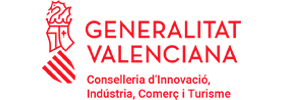AUTISM: THE IMMUNOGENETICS INVOLVEMENT AND GENDER ASSOCIATION
Speaker: Dr. Franca Rosa Guerini
Institution: Laboratory of Molecular Science and Biotechonologies, IRCCS Fondazione Don Gnocchi, Milan Italy
Place: Jerónimo Forteza conference room, CIPF
Abstract:
Autism spectrum disorders (ASD) are neurodevelopmental disorders affecting approximately 1 in 59 individuals worldwide and with a male to female ratio of approximately 3:1. ASD are characterized by difficulty in social interactions and a tendency toward repetitive and/or stereotyped behaviors. Like all complex psychiatric conditions, ASD involves both genetic, epigenetic and environmental factors, which interact to adversely affect brain development and functioning. Of particular relevance is the contribution of immunity and immune-genetic to ASD; the Immuno-genetic system composed by genes regulating the immune responses, is involved both in alterations of the embrio-fetal environment, and in neuroinflammation mechanisms.
In particular maternal Natural Killer (NK) cells localized at the fetal/maternal interface and their surface Killer immunoglobulin receptors (KIRs) interact with Human Leukocyte Antigen (HLA) ligands to maintain a fine equilibrium of growth promotion, surveillance and fetus tolerization in the uterine environment.
To this regard an increased frequency of KIR‐activating genes and their HLA ligands (HLA‐C and HLA‐G, mapping in the α and β blocks) was observed in autistic children, whereas tolerogenic KIR/HLA gene complexes are lower in children with ASD and, more significantly, in their mothers. This suggests that the true HLA‐ASD association should be viewed as a dysregulated interaction between maternal KIRs and filial HLA. We also evaluated HLA‐G allelic frequency in families of autistic children and found that HLA-G polymorphisms NK-activating were more frequently carried by ASD children and their mothers than by controls, and are correlated with the extent of behavioural disorder in autistic children. Also, mothers of children with ASD show a HLA‐G allele distribution similar to that of women with recurrent miscarriages, reinforcing the idea that maternal immune activation (MIA) and intrauterine pro‐inflammatory milieu may threaten a typical neurodevelopment or, at worst, cause miscarriage.
Growing evidence suggests the existence of important sex-dependent and sex-specific mechanisms causing differential ASD phenotypes. Increasing attention is receiving the relation of neuroinflammation with sex dimorphism social deficits and epigenetic alterations, showing that MIA may affect males more than females. Possible major explanations for sex difference in ASD rely on differences in sex chromosomes and sex hormones. The X chromosome hosts the largest number of immune genes, which therefore makes males more sensitive to the effect of variations affecting any of the X-linked immune genes. Moreover immunogenetic factors may intervene in the potential relationship between ASD and testosterone, or sex hormones in general. On the other hand, estrogens, given their immunoregulatory role, may counteract the effect of immunogenetic variations in autistic females.
However the study populations of ASD are highly male-skewed and probably, underpowered to detect significant effects in females therefore further studies are crucial to develop better diagnostic biomarkers for females.
PATROCINADO POR: 
With support from the Generalitat Valenciana, AMPER-02/2023 and CIAORG/2022/035


